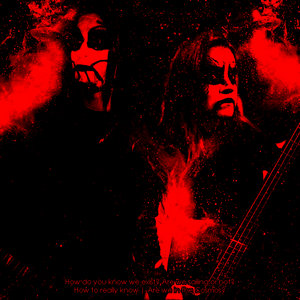

A stylistic device often used by him is to have the soloist sing in front of a sound carpet of a choir. The music is harmonically bold, only in the Polish scene does it become operatic. He does not use classical melody lines, but rather phrases that are ended by chords and then restarted. For the most part, Mussorgski remains true to the principle of “one syllable = one note”, which maximises the comprehensibility of the text. Many of the solo performances do not contain arias but are either monologues or songs. Mussorgski largely refrained from making a distinction between recitative and aria. He wrote an independent music, even though the mass scenes may have been influenced by French opera. Mussorgsky wrote a music that was fundamentally different from the Italian opera that was dominant in Russia at the time. He married the Polish woman Marina, but was killed shortly afterwards by a Shuiski intrigue – Shuiski became the new Tsar of Russia as Vassili IV.

The coup failed, but after the death of Godunov he was still able to take over the tsar’s dignity. During this time of famine, Dmitri of Poland tried to wrest the imperial title from Godunov, and with the help of the boyar Shuiski and the Polish churchman Rangoni, he succeeded in mobilizing an army. Godunov’s reign was a time overshadowed by great crises and Godunov was severely criticized by the boyars (the nobles). He initiated a peace treaty with the arch-enemy Poland, but only three years later, under the influence of a fake Dmitri, who had miraculously appeared in Poland, it was terminated. Thus, when Fyodor died 7 years later, Godunov himself became the tsar. Although the death was declared an accident, he was probably the victim of Boris Godunov. The second son of Ivan the Terrible, the 8-year-old son Dmitri died shortly afterwards. His unstable son Fyodor left the affairs of state to the boyar Boris Godunov. Pushkin based the story on Kasamin’s “History of the Russian Empire” and thus covers an important span of history.Īfter the death of Ivan the Terrible, the tsarist empire was in a desolate state. The historical background is not central to understanding the opera, but it is nevertheless very exciting. The opera thus belongs to the genre of the classical “literary opera”. Mussorgski took care of the libretto himself, he took many of the passages literally and kept the chosen scenes close to the original. In the first version Mussorgski selected 7 scenes in which the role of the main character was in the foreground, with the aim of creating a psychological portrait of Boris Godunov. Pushkin did not write a classic novel but 24 scenes, of which Mussorgsky used 7-9 scenes (depending on the chosen version of the opera). Pushkin finished his work in 1825, but it was not published until 40 years later for reasons of censorship. The choir often acts like acting persons and there are some polyphonic passages which are partly even dialogically arranged and therefore require an uncanny precision. The demands on the choir are considerable. With the Russian melodies and the harmonies of the sacred Orthodox music it still touches the Russian soul to this day and the work became the epitome of Russian opera. The people and, musically speaking, the choir became a defining element of this opera. Pushkin’s “Boris Godunov” served as a basis, which he used 1:1 wherever possible. Mussorgsky tried to achieve the Russian element through the harmonies, the choirs, and the realism of the performance and language. Rimsky-Korsakoff later revised the opera after Mussorgsky’s early death (see below). Mussorgsky was, along with Tchaikovsky, the most gifted musician Russia has ever had, but his lack of formal music education limited him at times and he often had to ask his patron and friend Rimsky-Korsakoff for advice. This had a dramatic consequence for Boris Godunov. Like most of the members, Mussorgsky was a musician on the sideline and had a full-time job. The “Russian five” (“Group of Five”) and their goal of promoting national Russian music is well known among music lovers.
#Vy musicality plus#
Unis dès la plus tendre enfance (Iphigenia).Madamina, il catalogo, Catalogue Aria (Don Giovanni).Je dis que rien ne m’epouvante (Carmen).

Glück, das mir verblieb (Die tote Stadt).Dies Bildnis ist wunderschön (Zauberflöte).Dein ist mein ganzes Herz (Land des Lächelns).


 0 kommentar(er)
0 kommentar(er)
